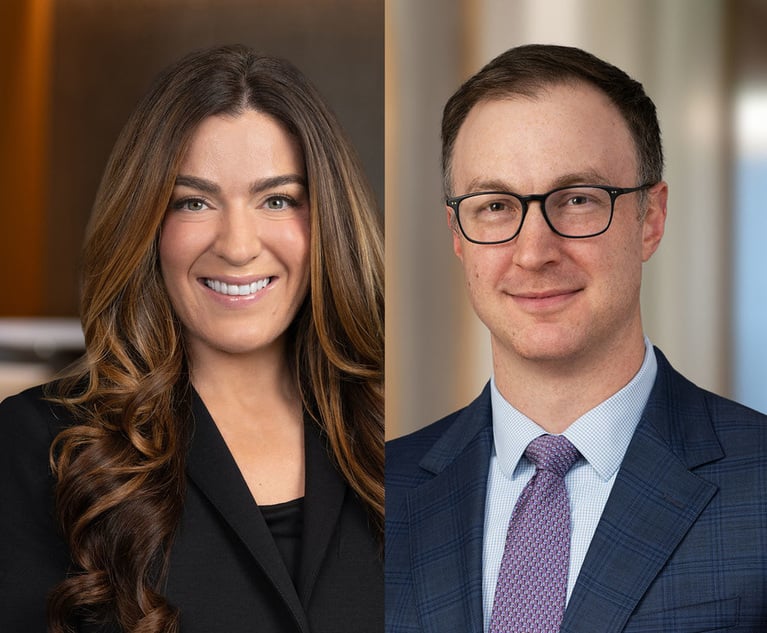 Former Deputy Attorney General Sally Yates talks candidly about the impact of her father's death by suicide with veteran journalist Brenda Wood at the 2019 Dorothy C. Fuqua Lecture presented by Skyland Trail and Grady Health System on Wednesday in Atlanta. This year's lecture focused on mental health and the path forward in suicide prevention. (Photo: John Amis/AP Images for Grady Health System)
Former Deputy Attorney General Sally Yates talks candidly about the impact of her father's death by suicide with veteran journalist Brenda Wood at the 2019 Dorothy C. Fuqua Lecture presented by Skyland Trail and Grady Health System on Wednesday in Atlanta. This year's lecture focused on mental health and the path forward in suicide prevention. (Photo: John Amis/AP Images for Grady Health System)Sally Yates, Reflecting on Her Father, Tackles Suicide Prevention
Former Deputy Attorney General Sally Yates, who became a lawyer like her father, shared the story of his suicide at a Wednesday discussion.
May 02, 2019 at 04:10 PM
6 minute read
The original version of this story was published on Daily Report
John Kelley Quillian, Sally Yates' father, spent almost 20 years as a judge on the Georgia Court of Appeals. He was “bigger than life” and a devoted father and husband, Yates said, with an opinion about everything.
Quillian committed suicide in May 1986 at age 56, just as Yates was preparing for her final law school exams at the University of Georgia.
Yates, the former U.S. deputy attorney general and now a partner in King & Spalding's Atlanta office, shared the story of his suicide at an event on Wednesday aimed at raising awareness for suicide prevention.
The event, organized by Grady Health System and Skyland Trail, a residential treatment center for people with mental illnesses, attracted a packed house at the Atlanta History Center.
While Quillian suffered from cyclical but chronic depression, which Yates said was an open topic in their close-knit family, they did not realize he was at risk for suicide.
“We absolutely encouraged him to seek help,” for his depression, she said. “But you can't force anyone to do something they don't want to do—and I don't think he was aware of the seriousness of his illness.”
Yates added that part of Quillian's reluctance to seek help was because he was a public figure. While they talked about his struggles with depression in the family, he was protective of his privacy. “I think he viewed it as a weakness and worried about the stigma,” she said.
“Looking back I can see signs—I wish I could have seen them then,” Yates said.
The U.S. suicide rate has increased by 33% since 1999—and 80% of those who commit suicide are older white men, said former 11 Alive news anchor Brenda Wood, who moderated the event, citing data from the Centers for Disease Control and Prevention.
Asked by Wood how to help people with depression to talk about it and get treatment so that “it's normal to talk about depression, like it is with kidney disease,” Yates said she's been speaking publicly about her father's suicide for just that reason: to encourage more people to seek support. That included an interview with David Axelrod last year for his podcast, “The Axe Files.”
“If it helps one person to open up and seek treatment, it's worth it,” Yates said. “Depression is a very treatable illness.”
“I was so touched by the outpouring of people who've gotten in touch and shared that they suffered from depression or are suicide survivors,” she added. “If you have kidney disease or a broken arm, you are not expected to tough it out. If you are suffering from a mental illness, why should you be expected to suffer in silence?”
|Steps to Seek Help
The discussion also included Ben Hunter, who is Skyland's medical director of outpatient services, Grady psychologist Dorian Lamis and the Rev. Scott Weimer, senior pastor of North Avenue Presbyterian Church, who lost his son to suicide.
Weimer said his son, Justin, was a talented athlete, jazz drummer and adventurer with an exuberant spirit—but he also suffered from chronic depression. His son, like Quillian, was open about his depression in their close family, Weimer said, but it was still a terrible shock when he took his life 3½ years ago at age 22.
Weimer said the family learned afterward that Justin had stopped taking his depression medication. “He wanted desperately for his faith to heal him. We told him it's an illness. You've got to take your meds.”
While suicide warning signs can be hard to spot in some cases, Skyland Trail's Hunter said, risk factors include drug and alcohol use, a family history of suicide, problems with health, finances or significant others—and any sign of suicidal ideation.
“When is the time to step in?” Wood asked Hunter.
“There's a saying in medicine: If you think about it, you should probably do it,” he replied. “If you've ever had concern about a family member around suicide or their mental health in general, then it's a good idea to talk.”
Check in, he advised, and ask how they're doing, how their week went—and what might be difficult for them right now.
If they clam up, Hunter's advice was to keep trying. “The first few times you might catch them off-guard,” he said, but when they've had time to think about what they want to say and prepare an answer, you may get better results.
Men in particular, Grady's Lamis added, tend to “feel they can handle their mental illness on their own. It takes a lot to break down those barriers.”
Hunter said that, for people who are struggling with depression, anxiety or addiction but refuse to seek treatment, it can help “decrease barriers” to treat it as a problem in the family system—and not just for the individual. “That takes the heat off the person who is the identified patient,” he said.
Even if the person who's suffering refuses therapy, he added, it's still good for the rest of the family to help cope.
Those experiencing suicidal thoughts should call the National Suicide Prevention Lifeline at 1-800-273-TALK (8255) for help and support.
The American Foundation for Suicide Prevention has crisis and support lines, plus local chapters listed on its website for both those thinking of suicide and survivors. The Suicide Prevention Resource Center is another option, and for teens, the Jed Foundation.
This content has been archived. It is available through our partners, LexisNexis® and Bloomberg Law.
To view this content, please continue to their sites.
Not a Lexis Subscriber?
Subscribe Now
Not a Bloomberg Law Subscriber?
Subscribe Now
NOT FOR REPRINT
© 2025 ALM Global, LLC, All Rights Reserved. Request academic re-use from www.copyright.com. All other uses, submit a request to [email protected]. For more information visit Asset & Logo Licensing.
You Might Like
View All

Chair of Montgomery McCracken Decamps for Morgan Lewis

Topping Kirkland, Weil Won the Most Valuable Major Bankruptcy Retentions of 2024
Trending Stories
- 1'Pull Back the Curtain': Ex-NFL Players Seek Discovery in Lawsuit Over League's Disability Plan
- 2Tensions Run High at Final Hearing Before Manhattan Congestion Pricing Takes Effect
- 3Improper Removal to Fed. Court Leads to $100K Bill for Blue Cross Blue Shield
- 4Michael Halpern, Beloved Key West Attorney, Dies at 72
- 5Burr & Forman, Smith Gambrell & Russell Promote More to Partner This Year
Who Got The Work
Michael G. Bongiorno, Andrew Scott Dulberg and Elizabeth E. Driscoll from Wilmer Cutler Pickering Hale and Dorr have stepped in to represent Symbotic Inc., an A.I.-enabled technology platform that focuses on increasing supply chain efficiency, and other defendants in a pending shareholder derivative lawsuit. The case, filed Oct. 2 in Massachusetts District Court by the Brown Law Firm on behalf of Stephen Austen, accuses certain officers and directors of misleading investors in regard to Symbotic's potential for margin growth by failing to disclose that the company was not equipped to timely deploy its systems or manage expenses through project delays. The case, assigned to U.S. District Judge Nathaniel M. Gorton, is 1:24-cv-12522, Austen v. Cohen et al.
Who Got The Work
Edmund Polubinski and Marie Killmond of Davis Polk & Wardwell have entered appearances for data platform software development company MongoDB and other defendants in a pending shareholder derivative lawsuit. The action, filed Oct. 7 in New York Southern District Court by the Brown Law Firm, accuses the company's directors and/or officers of falsely expressing confidence in the company’s restructuring of its sales incentive plan and downplaying the severity of decreases in its upfront commitments. The case is 1:24-cv-07594, Roy v. Ittycheria et al.
Who Got The Work
Amy O. Bruchs and Kurt F. Ellison of Michael Best & Friedrich have entered appearances for Epic Systems Corp. in a pending employment discrimination lawsuit. The suit was filed Sept. 7 in Wisconsin Western District Court by Levine Eisberner LLC and Siri & Glimstad on behalf of a project manager who claims that he was wrongfully terminated after applying for a religious exemption to the defendant's COVID-19 vaccine mandate. The case, assigned to U.S. Magistrate Judge Anita Marie Boor, is 3:24-cv-00630, Secker, Nathan v. Epic Systems Corporation.
Who Got The Work
David X. Sullivan, Thomas J. Finn and Gregory A. Hall from McCarter & English have entered appearances for Sunrun Installation Services in a pending civil rights lawsuit. The complaint was filed Sept. 4 in Connecticut District Court by attorney Robert M. Berke on behalf of former employee George Edward Steins, who was arrested and charged with employing an unregistered home improvement salesperson. The complaint alleges that had Sunrun informed the Connecticut Department of Consumer Protection that the plaintiff's employment had ended in 2017 and that he no longer held Sunrun's home improvement contractor license, he would not have been hit with charges, which were dismissed in May 2024. The case, assigned to U.S. District Judge Jeffrey A. Meyer, is 3:24-cv-01423, Steins v. Sunrun, Inc. et al.
Who Got The Work
Greenberg Traurig shareholder Joshua L. Raskin has entered an appearance for boohoo.com UK Ltd. in a pending patent infringement lawsuit. The suit, filed Sept. 3 in Texas Eastern District Court by Rozier Hardt McDonough on behalf of Alto Dynamics, asserts five patents related to an online shopping platform. The case, assigned to U.S. District Judge Rodney Gilstrap, is 2:24-cv-00719, Alto Dynamics, LLC v. boohoo.com UK Limited.
Featured Firms
Law Offices of Gary Martin Hays & Associates, P.C.
(470) 294-1674
Law Offices of Mark E. Salomone
(857) 444-6468
Smith & Hassler
(713) 739-1250











